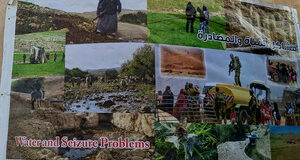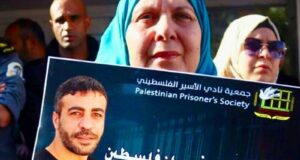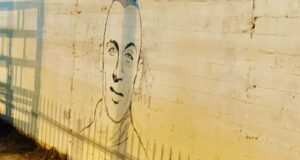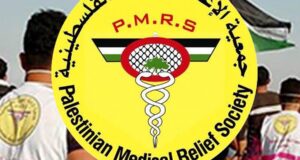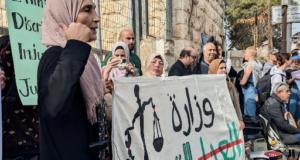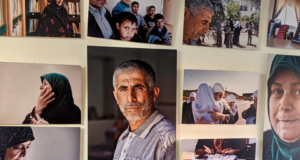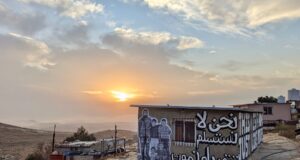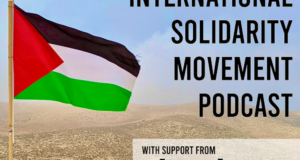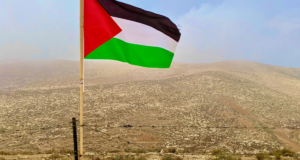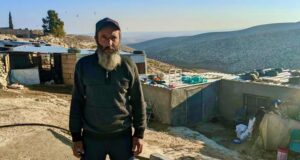This episode of the International Solidarity Movement Podcast was recorded last year, long before the current Israeli genocidal attack against Gaza began. Since te interview took place the situation in the Jordan Valley has got much worse. Jordan Valley Solidarity ...
Read More »ISM Podcast Episode 12: The General Union of Palestinian Women
ISM Podcast 12: The General Union of Palestinian Women TRANSCRIPT: Hey, welcome to the International Solidarity Movement podcast. يلا اهلاً وسهلاً بكم في حلقة حركة التضامن الدولية، فلسطين [This transcript has been edited for clarity] Welcome to the ISM podcast. ...
Read More »International Solidarity Movement Podcast episode 9: Dheisheh Refugee Camp – an epicentre of anticolonial resistance
In this episode Tom and Hazel speak to Sireen Khudairy, who is a resident of Dheisheh refugee camp in Bethlehem. For many years, Dheisheh has been a centre of determined resistance against the occupation. We spoke to Sireen in December ...
Read More »International Solidarity Movement Podcast episode 8: Building autonomous healthcare in Palestine
In this episode, Nicole and Tom interview Dr. Ghassan Hamdan of the Palestinian Medical Relief Society (PMRS). PMRS is a grassroots NGO that’s provided a much-needed response to the medical crises caused by the occupation. PMRS’ workers, like other Palestinian ...
Read More »The International Solidarity Movement podcast episode seven: Mothers fighting for Justice in Sheikh Jarrah
In this episode, we share an interview with Um Ramadan. We met her at a demonstration outside the district court in Jerusalem in December 2022. Alongside other mothers, she is protesting her son’s imprisonment. In this moving interview, she talks ...
Read More »The International Solidarity Movement podcast episode six: Prisoner Solidarity in Palestine
This episode has been released for Palestinian Prisoner’s Day. All around the world people are highlighting the conditions of people incarcerated by the Israeli occupation. To mark this day we bring you an interview with Milena Ansari, an incredible organiser ...
Read More »The International Solidarity Movement podcast episode five: ISM Volunteer Experiences on the Frontlines
In the fifth episode of the International Solidarity Movement podcast we are joined in the village of At-Tuwani by two ISM volunteers – Herbie and Maria – who both spent several months volunteering as internationalists in Palestine. They tell us ...
Read More »Announcing the International Solidarity Movement podcast
Welcome to the International Solidarity Movement (ISM) podcast. ISM is a Palestinian-led group which – for more than 20 years – has provided an important platform for international volunteers to join and support the popular resistance against Israel’s colonial occupation ...
Read More »The International Solidarity Movement podcast episode one: An introduction to ISM
In this first episode of the International Solidarity Movement podcast, we interview Abdel Karim – who has been with the movement since the early 2000s. The ISM is a grassroots Palestinian-led organisation, with principles of non-violence , non-hierarchy, and anti ...
Read More »The International Solidarity Movement podcast episode two: Surviving settler violence in Masafer Yatta
In episode two of our podcast we speak to Gassim Hamad Tahan from the village of Mufagara, in Masafer Yatta, in the South Hebron Hills. Gassim told us how the experience he had growing up is different to those of ...
Read More » International Solidarity Movement Nonviolence. Justice. Freedom.
International Solidarity Movement Nonviolence. Justice. Freedom.
